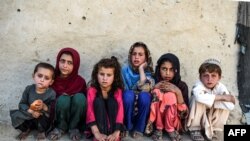The United Nations is calling for increased support for Afghanistan in response to increasing humanitarian needs due to COVID-19, conflict and climate change.
Jens Laerke, spokesman for the U.N.’s humanitarian affairs office, says the U.N. will need $1.3 billion to provide life-saving assistance for 16 million Afghans in the coming year.
“That is double the number of people compared to one year ago. And that drastic increase is almost entirely due to COVID-19…however, for the time being, we only have half the money that we need to provide winter support. Winter is coming and we need an additional $71 million for this year,” Laerke said.
Afghanistan has suffered 40 years of brutal war that has killed millions and displaced millions more within the country and as refugees. Afghans have told U.N. officials they desperately hope that ongoing Afghanistan peace negotiations succeed.
For peace to be credible, however, they say it must be inclusive of everyone in Afghanistan, especially women and girls.
Besides the ravages inflicted by this war, Laerke says people in Afghanistan also have to contend with a worsening climate crisis and other natural disasters. He says life for most Afghans has been a matter of survival over the past four decades.
“Their situation now has been further battered by the impact of the COVID-19 crisis. Household income and savings have disappeared, and needs have increased dramatically. Almost half of children under five are now facing acute malnutrition and require treatment to save their lives,” he said.
Laerke added that food and health care are primary needs. He noted aid agencies are staying and delivering relief to those in need despite the many risks to their safety. So far this year, he said aid workers have provided humanitarian assistance to nearly eight million people.




